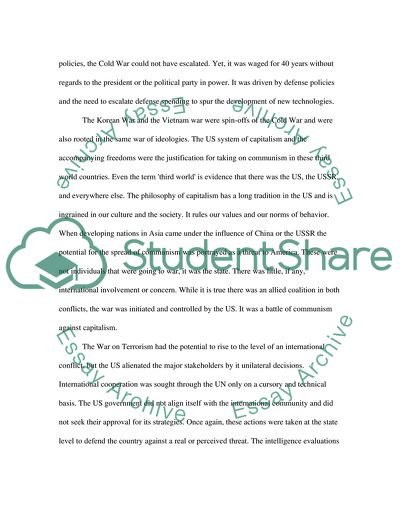Cite this document
(“The Cause of War Possible Solutions Essay Example | Topics and Well Written Essays - 1500 words”, n.d.)
The Cause of War Possible Solutions Essay Example | Topics and Well Written Essays - 1500 words. Retrieved from https://studentshare.org/politics/1710897-international-relations-questions-on-causes-of-war-and-another-essay-on-clash-of-civilization
The Cause of War Possible Solutions Essay Example | Topics and Well Written Essays - 1500 words. Retrieved from https://studentshare.org/politics/1710897-international-relations-questions-on-causes-of-war-and-another-essay-on-clash-of-civilization
(The Cause of War Possible Solutions Essay Example | Topics and Well Written Essays - 1500 Words)
The Cause of War Possible Solutions Essay Example | Topics and Well Written Essays - 1500 Words. https://studentshare.org/politics/1710897-international-relations-questions-on-causes-of-war-and-another-essay-on-clash-of-civilization.
The Cause of War Possible Solutions Essay Example | Topics and Well Written Essays - 1500 Words. https://studentshare.org/politics/1710897-international-relations-questions-on-causes-of-war-and-another-essay-on-clash-of-civilization.
“The Cause of War Possible Solutions Essay Example | Topics and Well Written Essays - 1500 Words”, n.d. https://studentshare.org/politics/1710897-international-relations-questions-on-causes-of-war-and-another-essay-on-clash-of-civilization.


